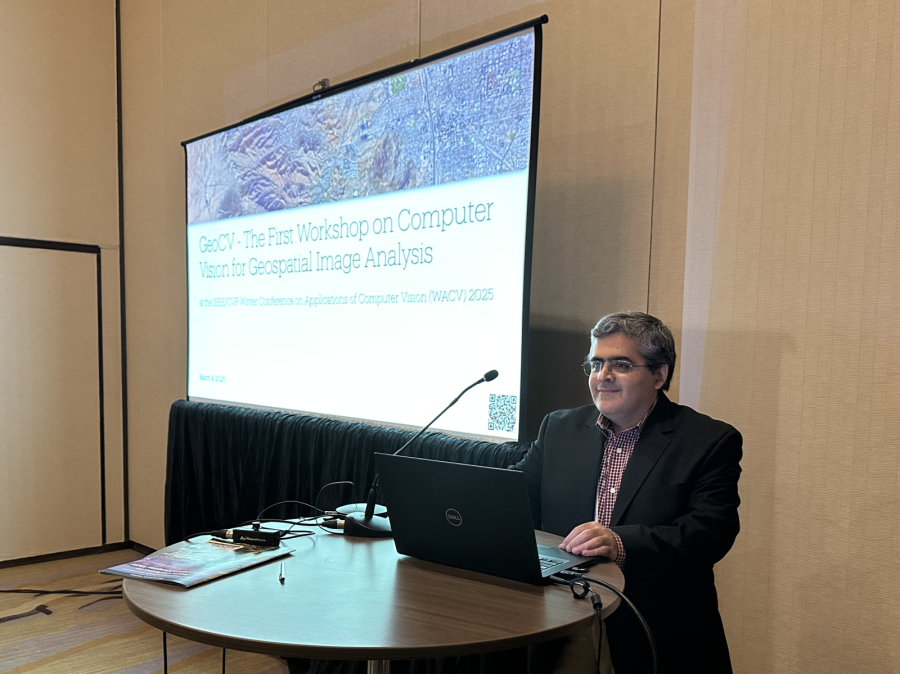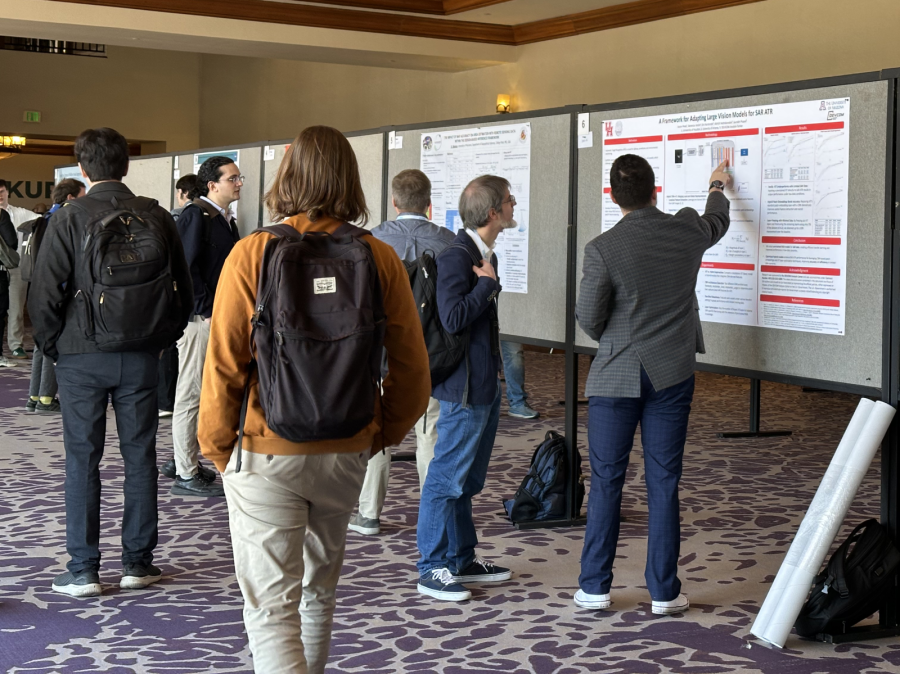A professor in the Cullen College of Engineering hosted the first in what is expected to be a continuing series of workshops on specialized topics in computer vision at an international conference earlier this year.
ECE professor and Director of the Cullen College’s Machine Learning and Signal Processing Laboratory Saurabh Prasad led the first workshop on computer vision for geospatial image analysis (GeoCV) at the Winter Conference on Applications of Computer Vision (WACV) 2025.
Computer vision is an artificial intelligence subfield focused on developing tools and algorithms to help AI make sense of images — something critical for making the most use of information like satellite data, which is abundant but can be challenging to interpret due to many factors.
“My lab focuses on research at the intersection of machine learning and computer vision with imaging applications such as remote sensing and biomedicine. Our core focus is to develop new algorithms that can help with the interpretation of images in support of science and engineering applications, ranging in scale from microscopy images to images acquired from drones and satellites. Building algorithms that can reliably “understand” such imagery despite a variety of confounding factors that are presented by real-life imaging scenarios is a challenging task” Prasad said.
Prasad leads a team of researchers working on various aspects of computer vision for a range of applications. Recent project topics have included reliable identification of land-cover categories and object detection in satellite imagery, detection of changes and targets of interest in imagery, super-resolving lower-resolution satellite imagery by leveraging information derived from drone images, techniques for harnessing the power of emerging “large foundation models” in support of engineering applications, and more.
WACV encourages workshops from presenters in niche topic areas within the umbrella of the conference. As part of the conference, the all-day workshop hosted by Prasad featured keynote talks by renowned speakers from across the world as well as paper and abstract presentations from researchers in academia, industry and research labs.
“The idea is to encourage cross-pollination of ideas between domains so that we — the community — don’t just talk among ourselves but reach out and talk to other computer vision and remote sensing researchers and come together over the latest developments to advance research,” he added.
Prasad considered the workshop a success, given a strong attendance from both the vision and remote sensing communities.
“Our poster sessions and invited keynote talks were engaging and very well received. I think it was quite successful,” he said. “Our plan is to continue something like this at WACV in upcoming years. We are also expanding to the flagship Conference on Computer Vision and Pattern Recognition (CVPR) this June.”
Prasad will be the lead organizer at this upcoming expanded workshop on Foundation and Large Vision Models in Remote Sensing (MORSE), which will be held in Nashville, TN on June 12, 2025 as part of CVPR.

